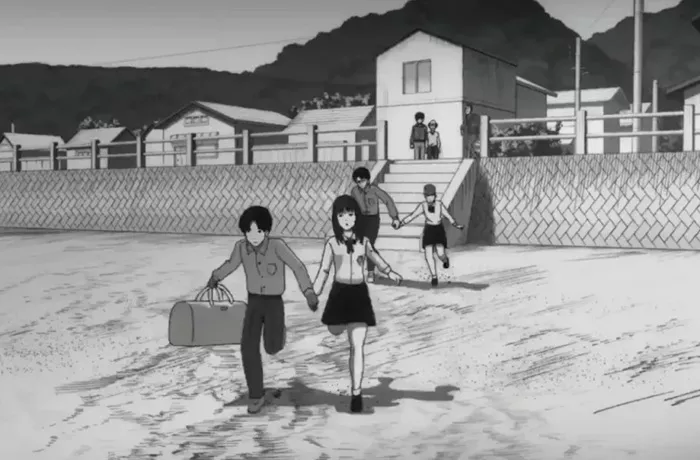The recent release of Uzumaki, based on Junji Ito’s acclaimed manga, has sparked considerable debate within the anime community, particularly regarding the role of Warner Bros. Discovery CEO David Zaslav in its disappointing reception.
This year, fans eagerly awaited the debut of Uzumaki, especially given the mixed results of previous Junji Ito adaptations. The project initially delivered with a strong premiere, showcasing stunning animation and chilling visuals. However, as the series progressed, it became increasingly known for its lackluster animation quality, leading many to question whether Zaslav played a part in its decline.
In recent weeks, Zaslav has faced criticism from multiple fronts, including shareholder dissatisfaction and widespread online backlash. His track record with animated projects has particularly drawn scrutiny, prompting fans to speculate about his influence on Uzumaki.
A Promising Start, A Disappointing Finish
To understand the missteps surrounding Uzumaki, it’s essential to consider its origins. The original manga, written by horror master Junji Ito, has garnered significant acclaim for its unsettling narrative and atmosphere. Announced for adaptation by Adult Swim, with Production I.G. as co-producer, fans were filled with anticipation after the 2019 reveal.
However, production delays due to the COVID-19 pandemic led to a long wait for updates. When Uzumaki finally premiered in 2024, the first episode impressed audiences, but subsequent episodes suffered from poor animation quality and rushed writing, ultimately damaging the show’s reputation.
Examining Zaslav’s Influence
Amid the fallout from Uzumaki, some netizens attributed its failures to Zaslav, referencing a viral report that suggested his involvement. However, it’s crucial to note that this report originated from TV Tropes, a fan-driven site, and should not be treated as authoritative. Nonetheless, the Uzumaki production team has acknowledged external pressures that impacted the anime’s quality.
Jason DeMarco, an executive at Adult Swim, addressed the situation on social media, stating, “It’s fine, we knew this would happen… we were screwed over.” He elaborated on the difficult decisions faced by the team, ultimately opting to air all four episodes despite their shortcomings out of respect for the effort invested by the creators.
Blame and Speculation
DeMarco’s comments suggested that the issues may not have stemmed directly from Zaslav but rather from a few individuals involved in the decision-making process. However, speculation abounds regarding Zaslav’s management style, especially in light of his history of making controversial decisions that have affected various animated projects at Warner Bros. Discovery.
Critics point to Zaslav’s decisions, such as shelving completed films for tax advantages and cutting numerous animated series, as evidence of his detrimental impact on the animation sector. As a result, many anime fans now view him as a figure of blame for the shortcomings of Uzumaki.
Lessons from Uzumaki
While it’s impossible to eliminate the potential for subpar anime adaptations, the case of Uzumaki serves as a cautionary tale for the industry. Animator Henry Thurlow expressed frustration over the situation, indicating that inadequate resources and mismanagement were likely contributing factors.
Thurlow argued that there is a pressing need for a deeper understanding of anime production among Western executives, emphasizing that the unique qualities of the medium should not be compromised. As anime continues to gain global popularity, it’s vital for stakeholders to recognize the intricacies involved in creating successful adaptations to avoid repeating the mistakes seen with Uzumaki.
Related Topics
New Shimajirō Film Set to Premiere in March 2025
Headhunted to Another World Anime Announces January 2025
Exciting Announcement: Anime Adaptation of The Holy Grail of Eris

